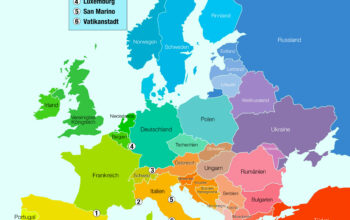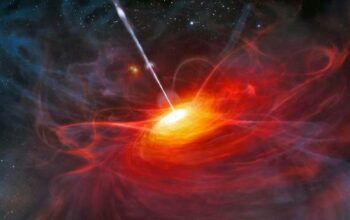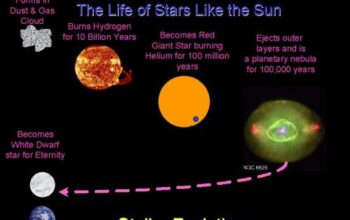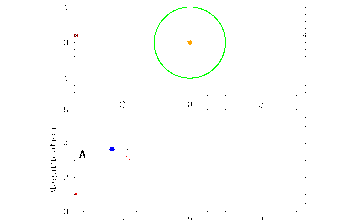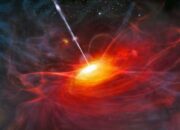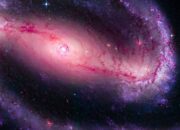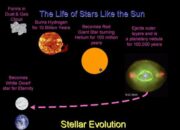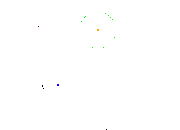The cosmos has long captivated the human imagination, serving both as the backdrop for existential inquiries and a realm where countless mysteries reside. As we traverse the boundaries of our understanding, cosmophysicists stand at the forefront of elucidating the intricate fabric of our universe. The call for innovative equations—breakthroughs that promise a paradigm shift in our comprehension of cosmic phenomena—is more pressing than ever.
To contextualize the urgency of this appeal, we must first acknowledge the challenges facing contemporary cosmology. Within the last few decades, significant anomalies have emerged, including dark energy and dark matter. These perplexities, constituting approximately 95% of the universe, remain elusive to our current frameworks. The introduction of new mathematical constructs is imperative; otherwise, the risk of stagnation looms large.
Conventional physics, predominantly anchored in Newtonian mechanics and classical general relativity, has failed to capture the essence of these enigmatic constituents. Einstein’s equations, while revolutionary, reveal their own limitations when confronted with cosmic-scale observations. The advent of quantum mechanics has provided a half-hearted solution; however, it, too, encounters obstructions when attempting to unite the gravitational force with the rest of the fundamental forces. This conundrum beckons the minds of cosmophysicists to craft novel equations that seamlessly bind these disparate realms.
Exploratory theories, such as string theory and loop quantum gravity, represent attempts to reconcile these discrepancies. These frameworks embark on a journey through multiverses and Planck-scale phenomena but often lapse into esoteric territory that lacks empirical validation. The aspirational integration of equations that can manifest measurable predictions is crucial. It is incumbent upon the cosmophysicist to transcend mere abstraction and venture into the domain of practical application.
An intriguing avenue to explore lies in the utilization of fractal mathematics. Fractals, with their self-similar structures recurring through various scales, may serve as a fruitful metaphor for understanding the universe’s chaotic and complex nature. By employing fractal dimensions in cosmological models, one can elucidate the distribution of galaxies and the vast cosmic web they inhabit. Such approaches foster a renewed appreciation for non-linear dynamics, revealing that order may indeed rise from apparent disorder.
Moreover, the intersection of cosmology and other scientific domains—such as thermodynamics and information theory—can yield profound insights. The implications of entropy, for example, play a pivotal role in conceptualizing the fate of the universe. The Second Law of Thermodynamics suggests an inevitable decline into chaos; yet, through the lens of information theory, one might posit that the universe continuously encodes its history, preserving the essential narratives that define cosmic evolution. The exploration of these intersections invites cosmophysicists to formulate equations that embody these complex interrelations.
Another compelling facet of this discourse is the burgeoning field of computational cosmology. The advent of high-performance computing capabilities allows for unprecedented simulations of cosmic phenomena. By harnessing algorithms that apply machine learning and neural networks, we can sift through vast datasets collected from telescopes and particle accelerators. The equations derived from these analyses can refine our comprehension of universal laws, guiding us toward unforeseen revelations.
Moreover, the role of observational evidence cannot be understated. Advanced technologies, such as the James Webb Space Telescope and gravitational wave detectors, have ushered in a new era of empirical scrutiny. Equations that embrace the wealth of data from these pioneering instruments will undoubtedly shape future theories. The synergy between theoretical constructs and observational validation will provide the scaffolding for a more profound understanding of the universe.
At this juncture, it is salient to contemplate the philosophical implications inherent in the search for new equations. The pursuit of understanding the universe transcends mere quantitative analysis; it grapples with the very essence of existence. The cosmic tapestry we seek to quantify is interwoven with questions of purpose, consciousness, and the human condition. As cosmophysicists embark on this intellectual odyssey, they must remain attuned not only to the mathematical prowess required but also to the human narratives that surround these grand discoveries.
In addition, the cultural resonance of cosmological findings demands attention. Historical and contemporary societies have often framed their metaphysical beliefs through the lens of cosmology, drawing upon esoteric traditions to communicate their understanding of existence. The challenge for modern cosmophysicists is to express their findings in a manner that is accessible and engaging, rekindling the public’s fascination with the cosmos. As equations are formulated, stories must accompany them—narratives that bridge the chasm between scientific insight and societal curiosity.
In conclusion, the clarion call for innovative equations in cosmophysics reverberates throughout the scientific community and beyond. The enticement of past mysteries, coupled with emerging anomalies, necessitates a radical reimagining of our conceptual frameworks. The dual endeavors of theoretical development and empirical validation will undoubtedly pave the way for transformative discoveries. Thus, cosmophysicists are urged to respond to this call, for the universe needs your equations—vehicles of insight that shall illuminate the darkest corners of our existential quest.

